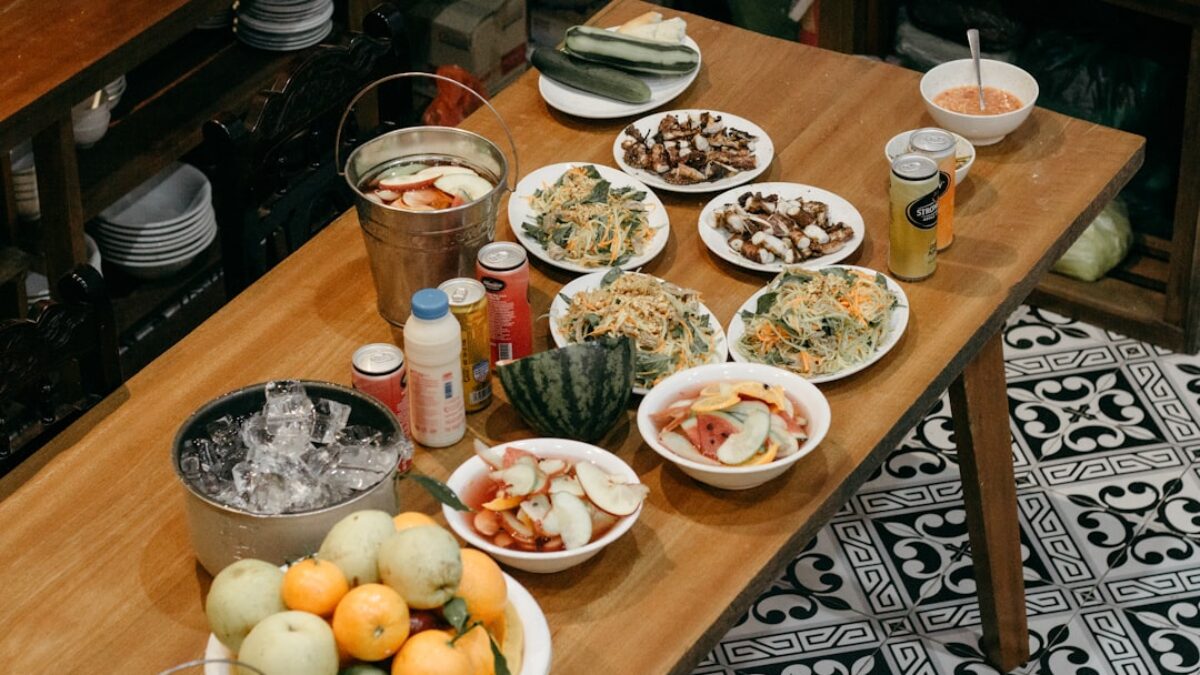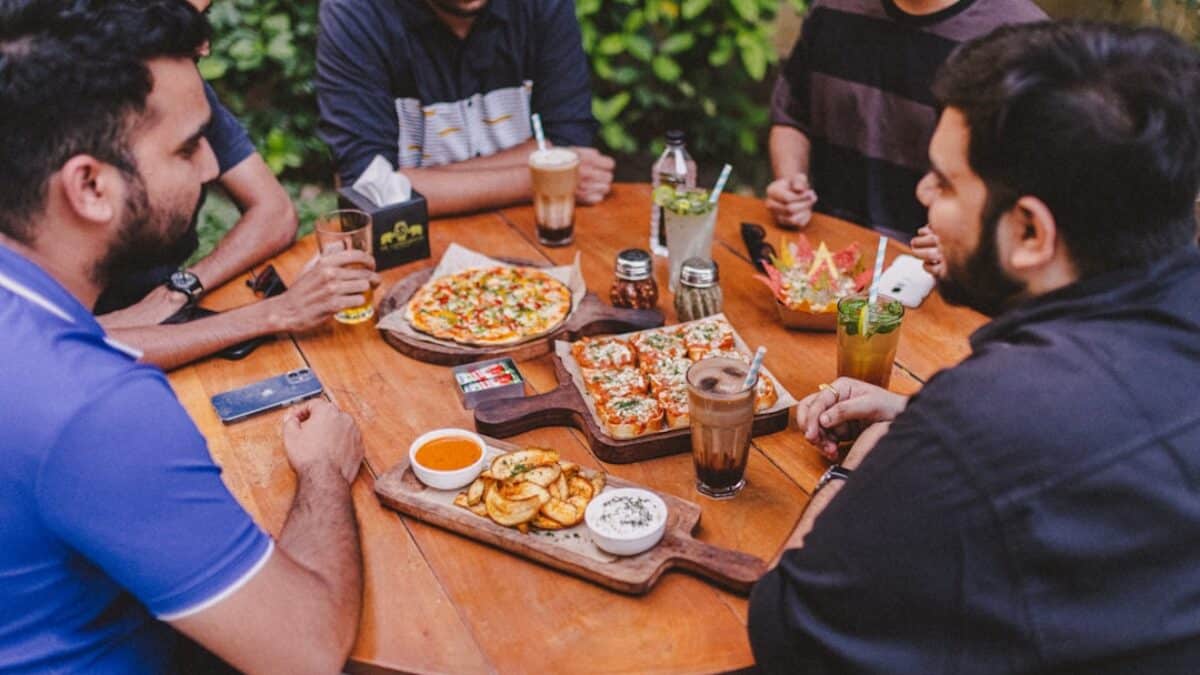Ramadan is a month of spiritual growth, nightly prayers, and daily fasting from dawn to sunset. While the focus is undeniably on worship and reflection, the physical challenge of 15–17 hour fasts in many regions cannot be ignored. The pre-dawn meal—suhoor—is your single opportunity to stockpile slow-release energy, hydration, and essential nutrients that will sustain you until iftar. Yet all too often, bleary-eyed families scramble for whatever is in the fridge at 3:45 a.m., ending up with salty leftovers or sugar-laden cereal that leaves them hungry again by 9 a.m.
This guide solves that problem with easy Ramadan suhoor meal prep: ten make-ahead recipes, built around balanced macros, wholesome ingredients, and straightforward batch-cooking techniques that you can knock out in a single weekend afternoon. By investing two hours once or twice a week, you will wake up to grab-and-go options that keep you energized, focused, and spiritually present all day long.
Understanding Suhoor Meal Prep
What “Meal Prep” Means in Ramadan Context
Meal prep, short for meal preparation, is the practice of planning, cooking, and portioning food in advance. During Ramadan, it has three unique goals:
- Efficiency: Minimize time in the kitchen at pre-dawn hours.
- Satiety: Prioritize complex carbs, lean protein, healthy fats, and high-fiber produce.
- Hydration: Include fluid-dense foods (yogurt, berries, soups) and electrolytes to offset daytime dehydration.
Core Principles of Ramadan Meal Prep
- Batch cooking: Make large quantities, then freeze or refrigerate in single-serve containers.
- Ingredient cross-utilization: Use overlapping spices, grains, and legumes across multiple recipes to save money and storage space.
- Macro balance: Aim for approximately 40 % complex carbs, 30 % protein, 30 % healthy fats.
- Flavor layering: Salt and spice levels stay stable or intensify after freezing, so season conservatively and adjust fresh herbs after reheating.
- Food safety: Cool cooked dishes within two hours, label with date, and consume frozen items within 30 days for best quality.
Key Components of a Balanced Suhoor
Complex Carbohydrates
Examples: oats, brown rice, quinoa, whole-wheat couscous, sweet potatoes. These carbohydrates break down slowly, preventing glucose spikes and crashes. Overnight oats and quinoa breakfast bowls are classic suhoor staples.
High-Quality Proteins
Examples: Greek yogurt, eggs, cottage cheese, lentils, chickpeas, chicken breast, salmon. Protein reduces ghrelin (the hunger hormone) and preserves muscle mass during prolonged fasting.
Healthy Fats
Examples: avocado, nut butters, chia seeds, almonds, walnuts, olive oil. Fats slow gastric emptying, extending satiety and enhancing absorption of fat-soluble vitamins A, D, E, and K.
Hydration Helpers
- Water-dense produce: cucumber, watermelon, citrus, berries
- Electrolyte sources: coconut water, dates, a pinch of Himalayan salt, or an oral rehydration tablet
- Herbal teas: chamomile or rooibos (caffeine-free) served cold
Micronutrient Boosters
Dark leafy greens (spinach, kale), colorful vegetables (bell peppers, tomatoes), and super-seeds (flax, hemp) deliver magnesium, potassium, iron, and B-vitamins that support energy metabolism.
Benefits and Importance of Make-Ahead Suhoor
- Consistent Energy: Balanced, pre-portioned meals prevent the “sugar roller-coaster” that causes mid-morning fatigue.
- Better Sleep: Eliminating late-night cooking gives you an extra 20–30 minutes of rest.
- Cost Savings: Buying staples in bulk and avoiding last-minute takeout can cut your food budget by up to 30 %.
- Portion Control: Pre-measured containers reduce mindless overeating and food waste.
- Spiritual Focus: A calm, clutter-free kitchen at 4 a.m. translates to a calmer heart for fajr prayer.
Practical Applications: 10 Make-Ahead Suhoor Recipes
Below are ten recipes engineered for freezer-friendly or fridge-friendly storage, each yielding 4–6 servings (multiply as needed). All recipes are halal, gluten-free adaptable, and can be prepared within a two-hour meal-prep block.
1. Overnight Date & Tahini Power Oats
Ingredients (per mason jar)
- ½ cup rolled oats
- 1 Tbsp chia seeds
- 1 Tbsp tahini
- 1 pitted Medjool date, chopped
- ¾ cup unsweetened almond milk
- Pinch of cinnamon
Method
- Combine all ingredients in a 250 ml mason jar.
- Stir, seal, and refrigerate up to 4 days.
- Serve cold or gently warmed.
Macros per serving: 310 kcal | 10 g protein | 42 g carbs | 12 g fat
2. Freezer Spinach-Feta Egg Muffins
Ingredients (12 muffins)
- 8 large eggs
- 1 cup chopped spinach (fresh or thawed frozen)
- ½ cup crumbled feta
- ¼ cup diced red bell pepper
- Salt, pepper, and oregano
Method
- Whisk eggs with seasoning; fold in vegetables and feta.
- Pour into silicone muffin cups.
- Bake at 180 °C (350 °F) for 18 minutes.
- Cool, then freeze in zip-top bags. Reheat 45 seconds in microwave.
3. Quinoa Tabbouleh Jars
Layer cooked, cooled quinoa with finely chopped parsley, mint, cucumber, tomato, and a lemon–olive-oil dressing. Store up to 5 days. Top with grilled chicken strips for extra protein.
4. Slow-Cooker Lentil & Sweet Potato Stew
Combine red lentils, diced sweet potato, carrots, crushed tomatoes, vegetable broth, cumin, coriander, and a dash of smoked paprika in a slow cooker. Cook on LOW 6 hours; portion into 500 ml containers. Freeze up to 1 month. Reheat on stovetop with a splash of water.
5. Almond-Crusted Chicken Breast Strips
Dip chicken tenders in egg wash, then coat with crushed almonds, parmesan, and paprika. Bake 20 minutes at 200 °C. Cool, freeze flat on trays, then transfer to bags. Reheat directly from frozen in an air fryer for 6–7 minutes.
6. Savory Cottage-Cheese Parfait
Layer ½ cup cottage cheese with sliced cucumber, cherry tomatoes, toasted pumpkin seeds, and za’atar. Store in tall deli containers; grab a spoon and go.
7. Whole-Wheat Banana-Oat Pancake Sheet Pan
Blend 3 ripe bananas, 4 eggs, 2 cups rolled oats, 1 tsp baking powder, and 1 tsp vanilla. Spread in a parchment-lined sheet pan; bake 15 minutes at 180 °C. Cut into squares; freeze between parchment sheets. Reheat in toaster.
8. Chia-Coconut Yogurt Pudding
Mix ½ cup Greek yogurt with ¼ cup coconut milk, 2 Tbsp chia seeds, 1 tsp honey, and diced mango. Refrigerate overnight; keeps 3 days. Top with toasted coconut flakes before serving.
9. Veggie-Packed Breakfast Burritos
Fill whole-wheat tortillas with scrambled eggs, black beans, sautéed peppers, onions, and shredded cheese. Wrap tightly in foil, freeze. Microwave 2 minutes from frozen, flipping halfway.
10. Hydrating Watermelon-Mint Smoothie Packs
Pre-portion zip-top bags with 1 cup frozen watermelon cubes, ¼ cup cucumber, 3 mint leaves, and a squeeze of lime. At suhoor, empty into blender with ½ cup coconut water; blitz 30 seconds. Instant, fiber-rich hydration.
Storage and Reheating Guidelines
| Recipe | Fridge Life | Freezer Life | Best Reheat Method |
|---|---|---|---|
| Overnight oats | 4 days | Not recommended | Microwave 30 s or eat cold |
| Egg muffins | 4 days | 2 months | Microwave 45 s |
| Quinoa tabbouleh | 5 days | Not recommended | Room temp |
| Lentil stew | 4 days | 1 month | Stove or microwave |
| Chicken strips | 3 days | 2 months | Air fryer 6-7 min |
| Cottage-cheese parfait | 3 days | Not recommended | Cold |
| Pancake squares | 3 days | 2 months | Toaster 2 min |
| Chia pudding | 3 days | Not recommended | Cold |
| Burritos | 3 days | 2 months | Microwave 2 min |
| Smoothie packs | 2 days (prepped produce) | 1 month | Blender 30 s |
Time-Saving Meal-Prep Workflow
Weekend Two-Hour Block
Hour 1 – Oven & Stove:
Start slow-cooker lentil stew. Prep and bake egg muffins and pancake sheet simultaneously. Slide chicken strips into oven right after muffins finish. 30 min – Cold Prep:
Assemble overnight oats and chia puddings in jars. Layer quinoa tabbouleh and cottage-cheese parfaits. Bag smoothie ingredients. 30 min – Cool, Pack, Label:
Cool all hot items on wire racks. Portion into containers, label, and load freezer/fridge. Quick kitchen wipe-down for a calm start to the week.
Frequently Asked Questions
How early can I start meal prepping before Ramadan begins?
Most freezer-friendly items (stews, burritos, chicken strips, pancake squares) can be made up to 30 days ahead and kept at a stable −18 °C. Refrigerator-only recipes should be prepared no more than 4–5 days prior to consumption to ensure peak freshness.
Can I substitute ingredients if I have allergies or dietary restrictions?
Absolutely. Use gluten-free oats for celiac needs; swap tahini with sunflower-seed butter for nut allergies; replace dairy yogurt with coconut or almond yogurt. The macro framework stays intact as long as you maintain similar ratios of carbs, protein, and healthy fat.
How do I ensure adequate
























Post Comment